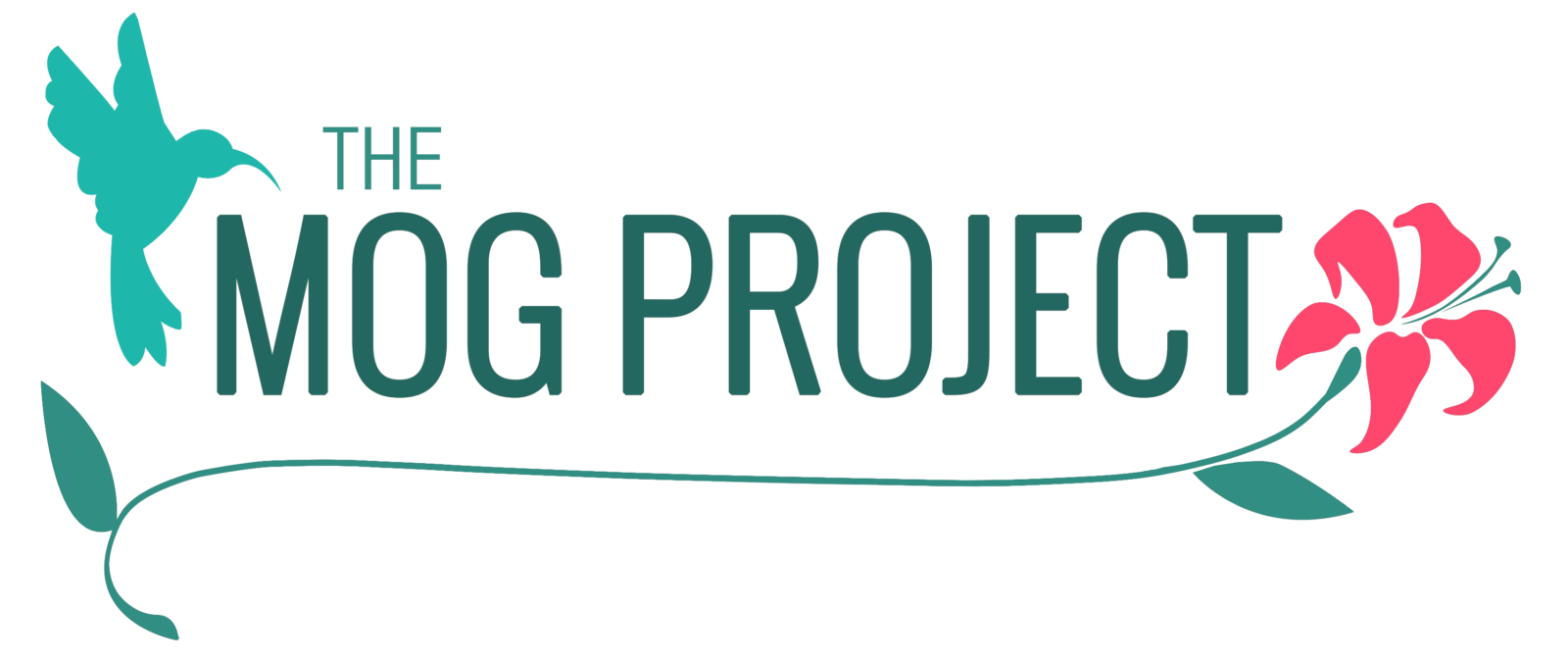Facts & Information
MOG Antibody Disease patient Brochure
Read our downloadable MOG Antibody Disease Patient Brochure which not only outlines some important information about this disease, but provides information about how we help patients and lets you know that there is hope in this community of tenacious hummingbird warriors!
Thanks to UCB Biopharma for their help in creating this brochure!


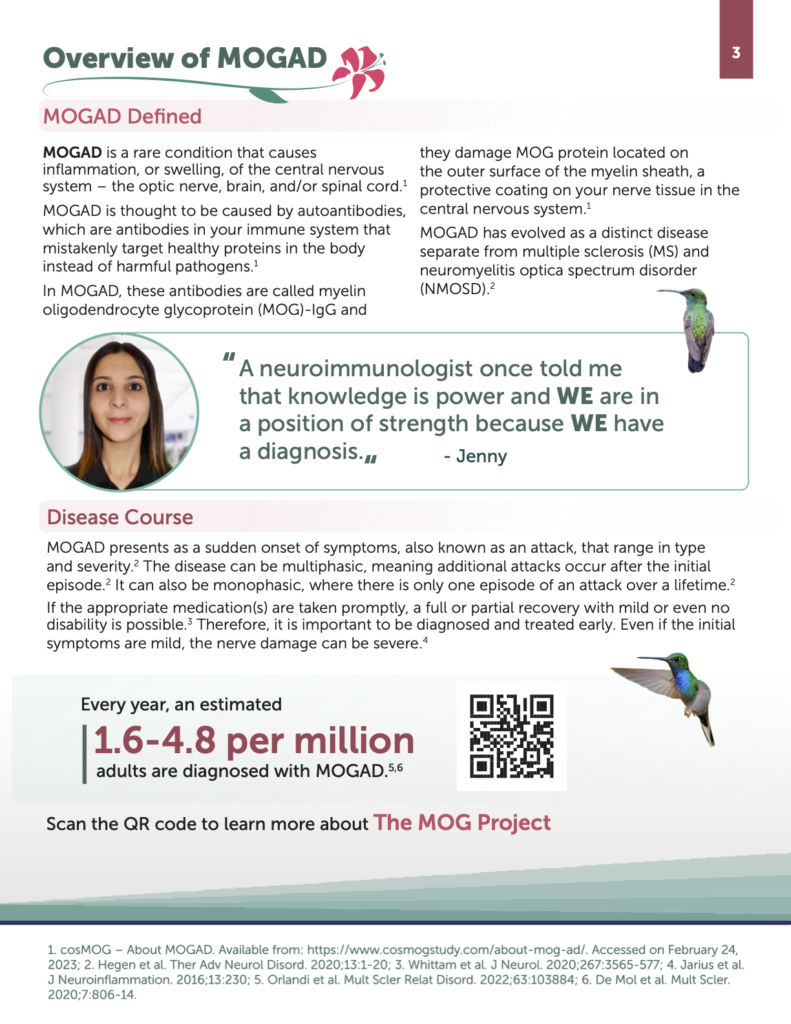
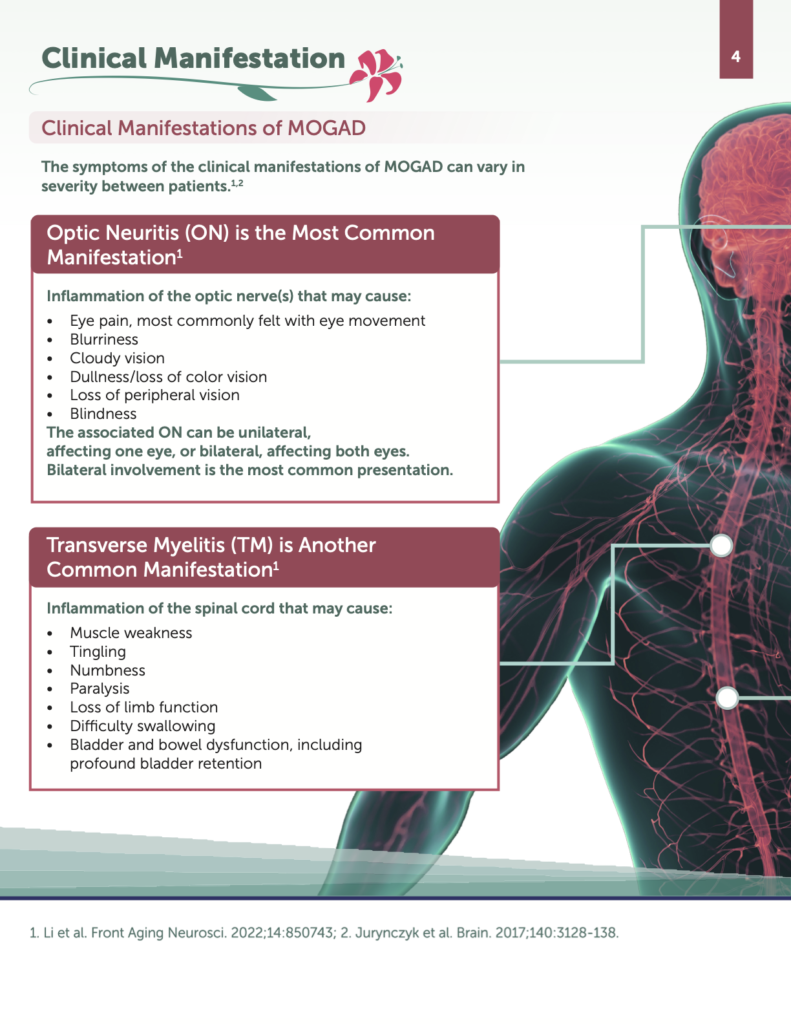
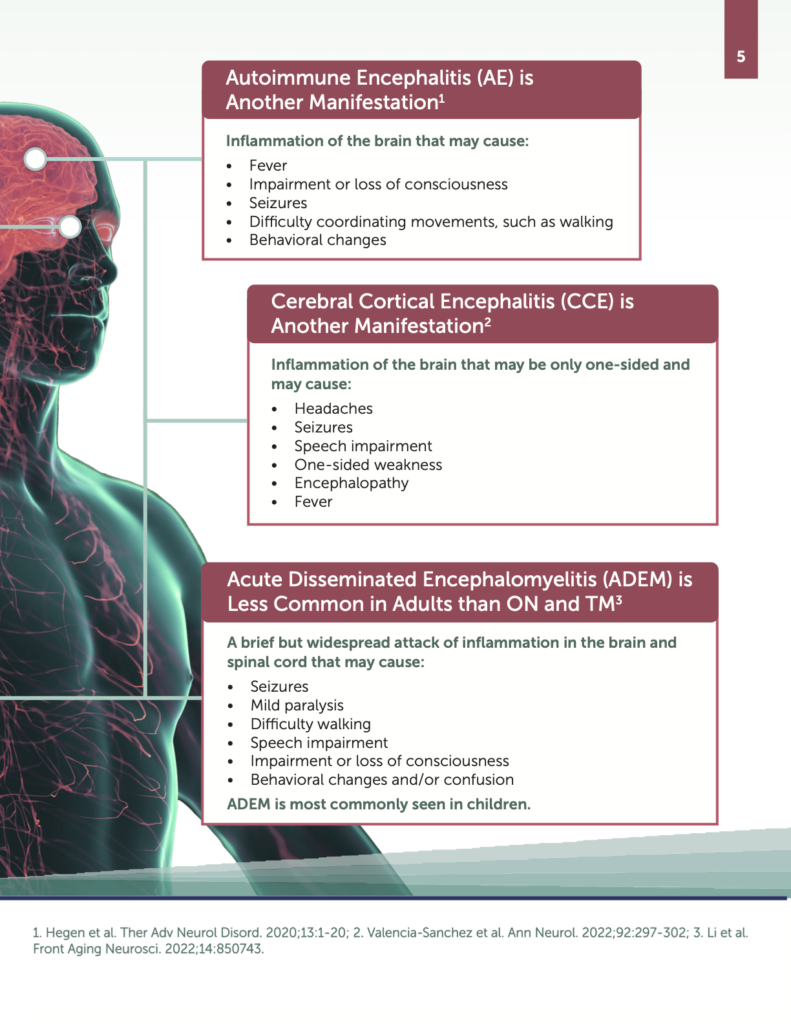
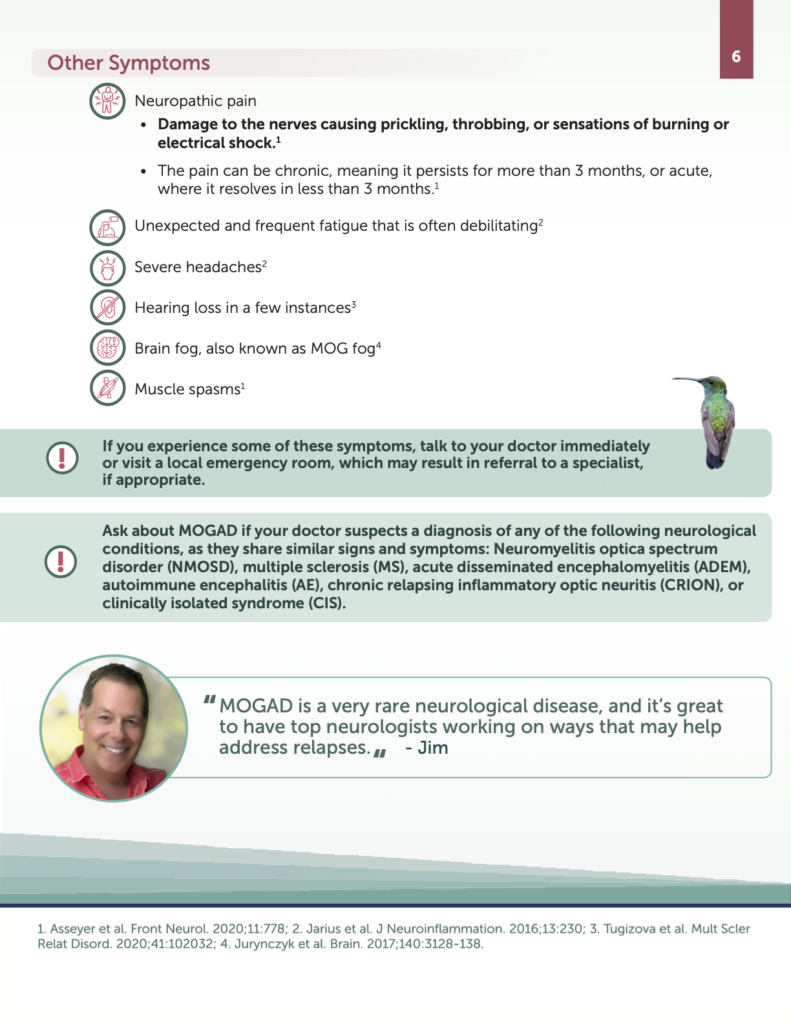
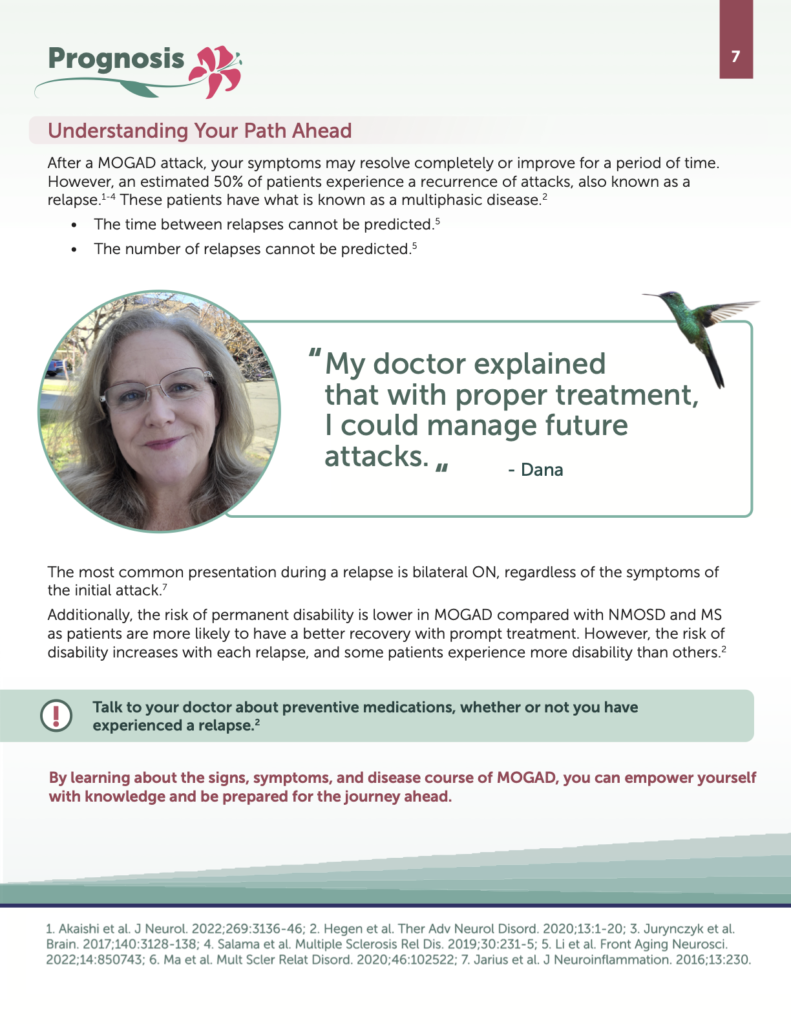
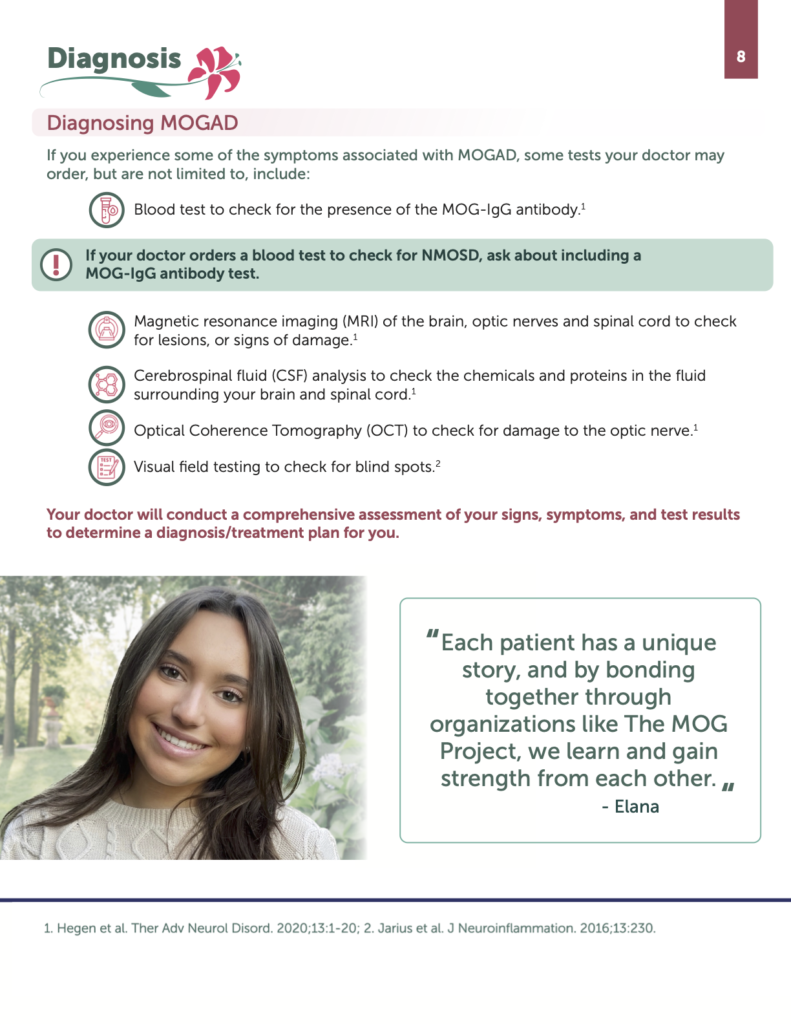
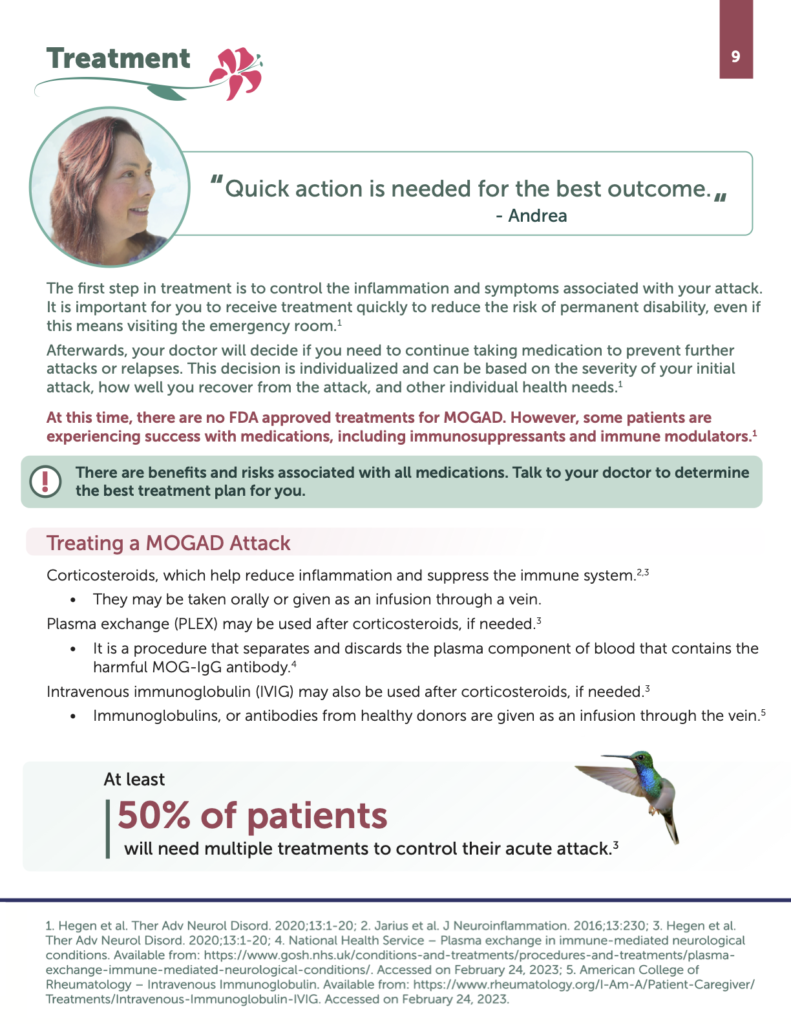

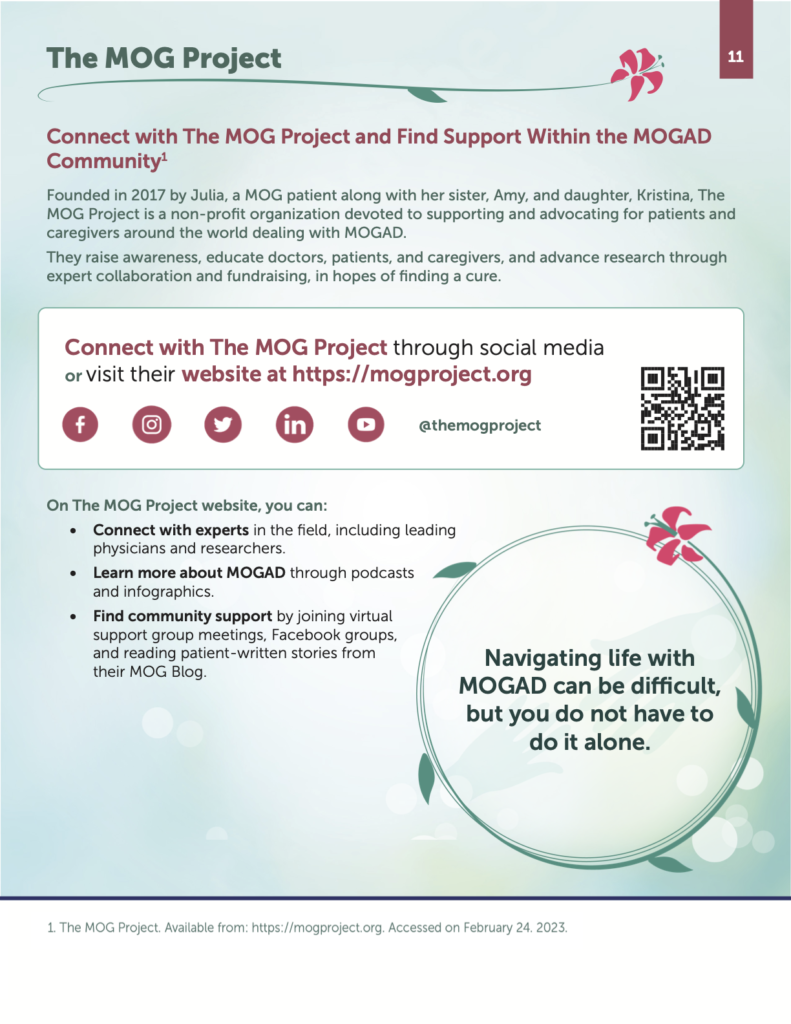

Important information for you
The sections below have important information for you to read about your disease as well as helpful resources to address challenges for patients and their caregivers, including parents.
Originally published on the Siegel Rare Neuroimmune Association website.
For viewing and download: MOG Antibody Disease (MOGAD)
Originally published on the Siegel Rare Neuroimmune Association website.
For viewing and download: Acute Disseminated Ecephelomyelitis (ADEM)
RESEARCH IN THE EFFICACY OF IVIG/SCIG
There are important studies that speak to the efficacy of IVIG and SCIG as well as the impact on MOG Antibody titers:
- John Chen, MD, PhD of Mayo Cinic headed up this research looking at the efficacy of intravenous immunoglobulin (IVIG) in MOGAD patients, with a few participants that were on subcutaneous immunoglobulin (SCIG): Association of Maintenance Intravenous Immunoglobulin With Prevention of Relapse in Adult Myelin Oligodendrocyte Glycoprotein Antibody–Associated Disease
- Elias Sotirchos, MD from Johns Hopkins followed up with this study looking further into patients on SCIG: Treatment of myelin oligodendrocyte glycoprotein antibody associated disease with subcutaneous immune globulin.
- Elias Sotirchos, MD looked to answer the question about the effects of IVIG/SCIG on the MOGAD titer levels in this study: Longitudinal evaluation of serum MOGIgG titers in MOGAD after initiation of maintenance immunoglobulin: A case series.
- Michael Levy, MD, PhD had the objective to determine the annualized relapse rates (ARRs) and incidence rate ratios (IRRs) compared to pre-treatment and relapse-freedom probabilities among patients receiving steroids, B-cell depletion (BCD), intravenous immunoglobulin (IVIG), and mycophenolate mofetil (MMF) in this study: Effectiveness of immunotherapies in relapsing myelin oligodendrocyte glycoprotein antibody-associated disease. He and his team concluded that IVIG had the lowest ARRs and IRRs compared to pre-treatment and the highest relapse-freedom odds ratio compared to prednisone, while BCD had the lowest. In pediatric-onset MOGAD, MMF had the lowest ARRs
HELP IN GETTING IVIG/SCIG
Our partners at the SRNA have developed this useful resource for patients to help understand not only immunoglobulin (Ig) itself, but how to work with insurance companies to obtain it:
The Use of Immunoglobulin (Ig) in MOG Antibody Disease (MOGAD)
We also have a template letter for your to provide to your doctor for use in getting IVIG approved by your insurance during an appeal which you can find below. This letter was formulated by Michael Levy, MD, PhD:
Template Letter of Medical Necessity for Appeal of IVIG for MOGAD
For help with insurance or obtaining IVIG or SCIG with a prescription from your doctor, please contact Michelle Vogel from IV Solutions RX.
The International MOGAD Panel is a committee of the most important experts in MOGAD globally. In January of 2023, they released their work on the first iteration of a proposed diagnostic criteria for MOGAD and published it. This important working group’s recommendations can be printed and taken to your medical professional for discussion if there is any question as to whether you have MOGAD or not:
This publication is broken down into simpler terms in the first of our Research Article Rundown availble in our MOG Blog:
Since relapses are a very important part of understanding MOGAD and its disease course, a recent article by Michael Levy, MD, PhD can help you and your doctor understand the types of relapses one can expierience:
Multiple types of relapses in MOG antibody disease.
Both of these resources can be helpful to take to your doctor and we encourage you to read them and start an open discussion.
In a collaborative effort by The MOG Project and The Siegel Rare Neuroimmune Association, we provide this printable fact sheet to give to any educator of your MOGAD student so that they can better understand and assist in a learning environment:
